Top 10 Public Cloud Platforms
November 29, 2024 | Editor: Michael Stromann
27
Public Cloud platforms provide on-demand storage and computer resources for enterprise data and applications that allow to save money and enhance data security.
1
IaaS/PaaS cloud platform with over 200 services, including computing, storage, database engines and machine learning. Provides a global network of data centers and pay-as-you-go pricing model.
2
Microsoft Azure is an open and flexible cloud platform that enables you to quickly build, deploy and manage applications across a global network of Microsoft-managed datacenters. You can build applications using any alternative language, tool or framework. And you can integrate your public cloud applications with your existing IT environment.
3
Google Cloud Platform is a set of modular cloud-based services that allow you to create anything from simple websites to complex applications. Cloud Platform provides the building blocks so you can quickly develop everything from simple websites to complex applications. Explore how you can make Cloud Platform work for you.
4
Heroku is the leading platform as a service in the world and supports Ruby, Java, Python, Scala, Clojure, and Node.js. Deploying an app is simple and easy. No special alternative tools needed, just a plain git push. Deployment is instant, whether your app is big or small.
5
Cloud computing platform for developers. Allows easily build, test, manage, scale applications of any size and also build, train and deploy AI apps and AI agents.
6
Europe’s leading cloud provider, that delivers public and private cloud products, shared hosting and dedicated server solutions in 140 countries worldwide.
7
Oracle Public Cloud provides customers and partners with a high-performance, reliable, elastic, and secure infrastructure for their critical business applications and offers customers a complete range of business applications and technology solutions, avoiding the problems of data and business process fragmentation when customers use multiple siloed public clouds.
8
Rackspace Cloud offers four alternative hosting products: Cloud Servers for on-demand computing power; Cloud Sites for robust web hosting; Cloud Load Balancers for easy, on-demand load balancing and high availability; and Cloud Files for elastic online file storage and CDN.Rackspace Cloud hosting customers never need to worry about buying new hardware to meet increasing traffic demands or huge traffic spikes.
9
Get the best of both worlds – the power of real time + the simplicity of the cloud – with our cloud-based deployment option for SAP Business Suite powered by SAP HANA, SAP NetWeaver BW powered by SAP HANA, and the SAP HANA platform.
10
IBM Cloud offers open cloud infrastructure services for IT operations. The IBM Cloud gives you the flexibility to have public, private or hybrid clouds, depending on your business needs. With the IBM Cloud you can unlock more value in your business and in the technology you already have. It’s the cloud that can integrate enterprise-grade services and help speed up the way you innovate.
11
Alibaba Cloud offers a integrated suite of cloud products and services that are reliable and secure, to help you build cloud infrastructure, data centers in multi regions empower your global business.
12
Tencent Cloud is a secure, reliable and high-performance cloud compute service provided by Tencent - the largest Internet company in China
Important news about Public Cloud Platforms
2023. CoreWeave, a GPU-focused cloud compute provider, lands $221M
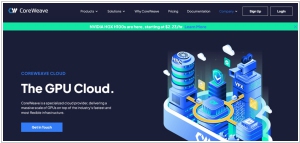
CoreWeave, a general-purpose cloud computing platform, has raised $221. CoreWeave initially had a singular focus on cryptocurrency applications, but in recent years, it shifted its focus to encompass general-purpose computing and generative AI technologies, such as text-generating AI models. Nowadays, CoreWeave offers access to a wide range of Nvidia GPU models in the cloud, with over a dozen SKUs available, including H100s, A100s, A40s and RTX A6000s. These GPUs can be utilized for various purposes, including AI and machine learning, visual effects and rendering, batch processing and pixel streaming.
2023. ChatGPT comes to Microsoft Azure
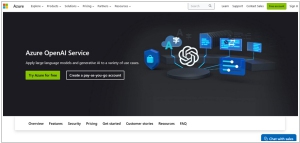
In a move that would surely delight any intergalactic entrepreneur, Microsoft has unveiled that ChatGPT is now happily mingling with the corporate cosmos through the Azure OpenAI Service—a thoroughly buttoned-up, managed platform that’s apparently chock-full of governance and compliance frills. ChatGPT, naturally, joins a distinguished band of AI compatriots already camped out in Azure, including GPT-3.5, a veritable wizard of words; Codex, a virtuoso of code; and DALL-E 2, a digital daydreamer of images. Microsoft, as it happens, has invested cosmic quantities of cash into OpenAI, all to secure an exclusive (and no doubt lucrative) partnership that would, ideally, bring intelligent musings to the rest of the galaxy.
2022. Google Cloud will shutter its IoT Core service next year
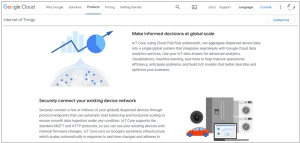
Google Cloud announced this week that it is discontinuing its IoT Core service, giving customers a year to transition to a partner for managing their IoT devices. The company believes that having partners oversee the process for customers is a more effective approach. “Since launching IoT Core, it has become evident that our customers’ needs could be better addressed by our network of partners who specialize in IoT applications and services. We have worked extensively to offer customers migration options and solution alternatives and we are providing a year-long transition period before IoT Core is phased out,” a Google spokesperson explained.
2022. Google expands Vertex, its managed AI service, with new features
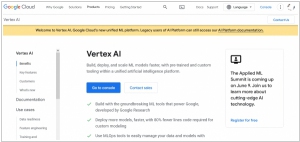
Approximately a year ago, Google unveiled Vertex AI, a managed AI platform designed to assist companies in speeding up the deployment of AI models. Today, the company announced new features coming to Vertex, including a dedicated server for AI system training and “example-based” explanations. As Google has traditionally marketed it, the advantage of Vertex is that it consolidates Google Cloud services for AI under a unified interface and API. Clients such as Ford, Seagate, Wayfair, Cashapp, Cruise and Lowe’s utilize the service to build, train and deploy machine learning models in a single environment, Google asserts — transitioning models from experimentation to production.
2021. Microsoft launches Azure Container Apps, a new serverless container service
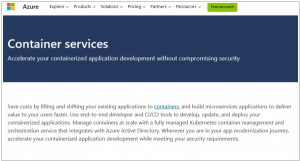
Microsoft today announced the preview release of Azure Container Apps, a new fully managed serverless container service that complements the company’s existing container infrastructure offerings such as the Azure Kubernetes Service (AKS). Microsoft highlights that Azure Container Apps was specifically designed for microservices, with the capability to quickly scale based on HTTP traffic, events, or long-running background tasks. In many respects, it is most similar to AWS App Runner, one of Amazon’s limited range of serverless container services, with App Runner also focusing on microservices. Google, in turn, offers a suite of container-centric services, including Cloud Run, its serverless platform for running containerized applications.
2021. IBM Cloud Satellite brings IBM public cloud on premises
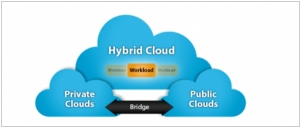
While IBM's main cloud focus in recent years has been on multi-cloud solutions, it has continued to provide its own public cloud services, targeting them at intricate enterprise tasks that usually operate on mainframes or other systems. The new platform IBM Cloud Satellite is designed as an extension of the IBM Public Cloud that can operate within the customer's data center or at the edge. Like IBM's other hybrid cloud solutions, IBM Cloud Satellite runs on Red Hat OpenShift, the Kubernetes management environment, under the hood. It functions by introducing the concept of a Location that represents an instance of IBM Public Cloud beyond IBM's data centers.
2020. Koyeb raises $1.6M for its serverless data-processing engine
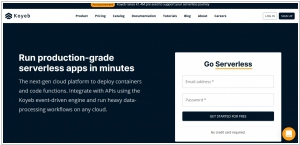
French startup Koyeb, which specializes in data-processing workflows across various cloud providers, has secured $1.6 million in pre-seed funding. Koyeb envisions that companies will increasingly utilize the best cloud-native APIs and storage services in the future. To seamlessly integrate these diverse providers, Koyeb offers the serverless solution that connects everything together. For example, you can store videos on object storage managed by DigitalOcean, transcribe the audio from those video files on Google Cloud using Google’s speech-to-text API and save the results in a different object storage bucket.
2020. Cloudflare launches Workers Unbound, the next evolution of its serverless platform
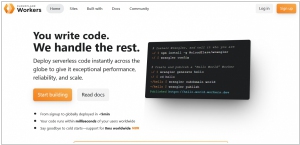
Cloudflare has unveiled Workers Unbound, the latest advancement in its mission to provide a serverless platform capable of rivaling AWS Lambda. The company initially introduced its Workers edge computing platform in late 2017. Today, it has “hundreds of thousands of developers” utilizing it and in the past quarter alone, over 20,000 developers created applications based on the service, according to the company. Cloudflare also leverages Workers to support many of its own services, but the initial version of the platform had several constraints. The goal of Workers Unbound is to eliminate most of those limitations and evolve it into a platform that can compete with AWS, Microsoft and Google.
2020. Cloud for developers DigitalOcean raises $50M
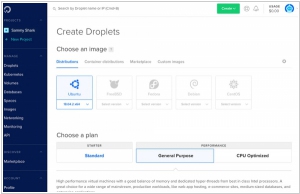
DigitalOcean, the cloud service for building contemporary applications, today revealed it has secured a $50 million Series C funding round led by Access Industries, with contributions from Andreessen Horowitz. DigitalOcean Cloud streamlines modern app development for new generations of developers — from individual programmers to startups and SMBs. Its infrastructure and platform-as-a-service (IaaS and PaaS) offerings deliver a “no DevOps needed” experience, enabling developers to concentrate their efforts on crafting innovative software. The new $50 million funding values the company at $1.15 billion, implying it was worth $1.1 billion pre-money.
2020. CloudShare extends virtual IT Labs solutions to Google Cloud Platform
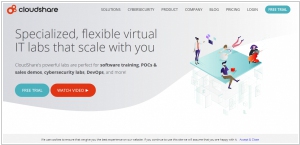
In a move that would almost certainly baffle any self-respecting Vogon, CloudShare has officially joined the ranks of Google Cloud Partners, boldly offering its scalable, hands-on virtual training solutions on Google Cloud Platform (GCP) — which means software companies everywhere can now conduct elaborate training sessions atop a vast digital landscape that’s anything but a flimsy cloud illusion. And, as if that weren’t enough to boggle even the keenest of minds, CloudShare is already at work on similarly transparent, mystifying training solutions for AWS and Azure, scheduled to appear in a mere handful of months (assuming, of course, that time flows in any recognizable fashion in this particular corner of the universe).














